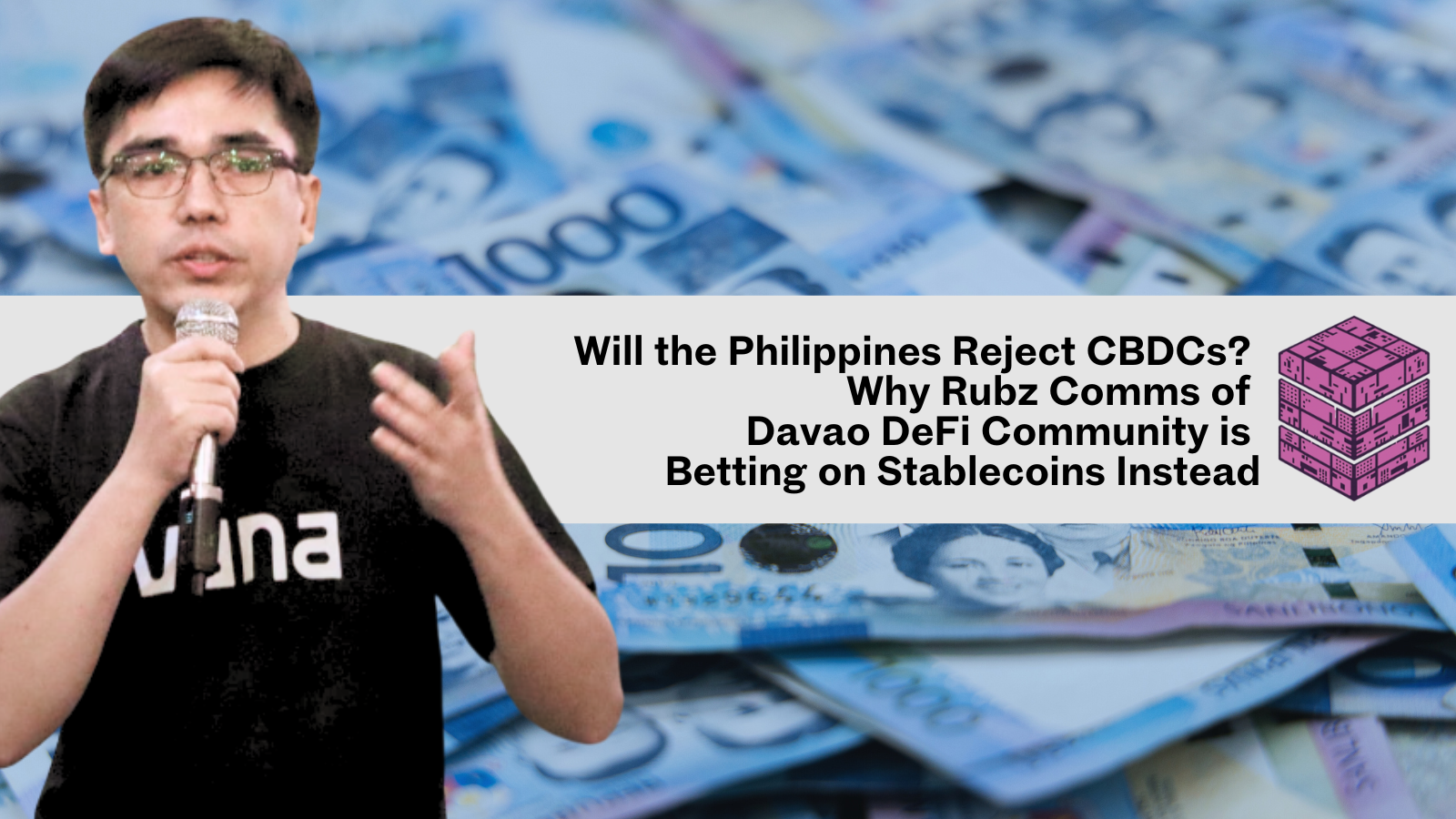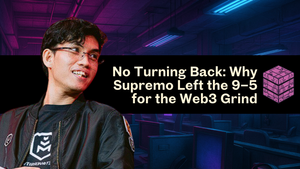What happens when digital currencies are controlled by governments instead of the people? Davao DeFi Community's (DDC) Rubz Comms believes CBDCs contradict the very principles of blockchain, and they are making their stance clear: stablecoins are the better alternative.
As governments worldwide explore the idea of Central Bank Digital Currencies (CBDCs), one blockchain community in the Philippines remains unconvinced. Davao DeFi Community (DDC) founder Ruben Lacumba, known as Rubz Comms, believes the country is more likely to adopt stablecoins than a government-backed digital currency.
Comms is critical of CBDCs, arguing that they go against the core principles of decentralization and could lead to increased control over financial transactions.
"But I think last days, I heard that Europe may be pivoting on CBDC. I'm not sure if it's really the case, but I really hope that they would reconsider that."
According to the European Data Protection Supervisor (EDPS), 87 countries, representing 90% of global GDP, are exploring central bank digital currencies, with nine already launching their own state-owned digital currency.
The Stablecoin Arguement
Instead of supporting a government-controlled financial system, DDC is betting on stablecoins as the future of digital money in the Philippines. Comms points to the growing role of on-chain assets in global finance, citing the shift toward decentralized solutions over centralized alternatives.
"But with what's happening on the current state where U.S. is really pitching out more on the on-chain side comparing to CBDC, Trump said that he doesn't agree with CBDC, but he would definitely pivot more on the on-chain, which is basically stablecoin."
The potential limitations of a CBDC, according to Comms, include increased surveillance and control over transactions, which contradicts the permissionless and open nature of cryptocurrencies.
The Banko Sentral ng Pilipinas on CBDCs
While some countries are exploring CBDCs for retail use, the Philippines appears to be taking a different approach. According to Rubz Comms, discussions around CBDCs in the country indicate a potential focus on wholesale use rather than direct consumer adoption.
"I heard that there are pivots, but it will not be going for retail, but more on institution, bank to bank and financial institutions."
This aligns with a broader trend where CBDCs are being considered as a tool for interbank settlements rather than as a replacement for everyday digital payments.
Even the Bangko Sentral ng Pilipinas (BSP), although acknowledges the advantage of wholesale CBDCs, has expressed reservations about the value of a retail CBDC in the country. In a recent report, the BSP noted that account-based CBDCs may not offer significant advantages over existing retail payment systems.
The National Retail Payment System is already driving broader payment digitalization and financial inclusion—outcomes that a retail CBDC is expected to achieve.
However, the report highlighted some potential applications for retail CBDCs, such as offline payments and 24/7 transaction availability. It also raised legal concerns regarding the issuance of a retail CBDC, adding another layer of complexity to its implementation.
Preference for Stablecoins
DDC’s preference for stablecoins aligns with recent global trends. Countries like the United States have seen political leaders and financial experts advocate for regulated stablecoins instead of CBDCs. Comms believes this shift will influence the Philippine market.
For the Davao DeFi Community's Rubz Comms, the future of digital transactions should be driven by transparency and accessibility rather than government-issued assets.
As the Philippines continues discussions on digital currencies, the debate between CBDCs and stablecoins is far from over. But in Comm's view, the choice is clear: decentralized, on-chain finance will always be the better alternative.











